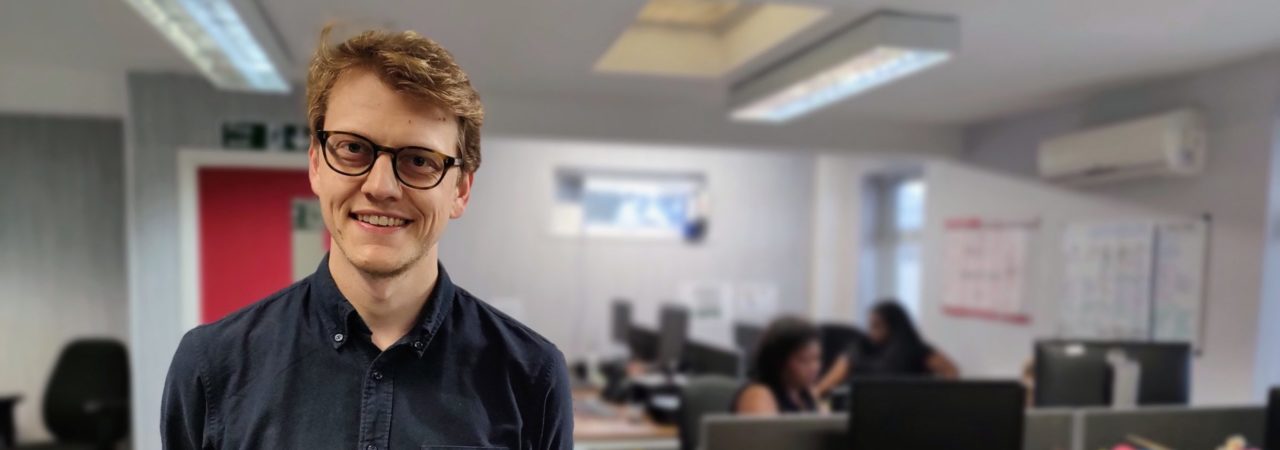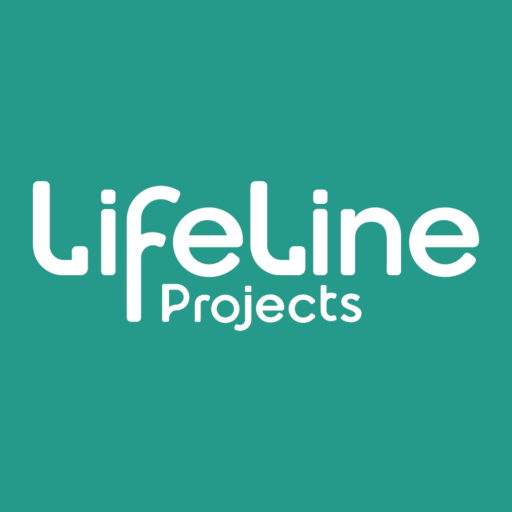This month, we’re talking with Jeremy, who has been a member of our FaithAction team as Policy and Programme Officer since 2019. Jeremy has been leading on the team’s engagement with government policy, including feeding back to Westminster on the effects of policy changes, and has been responsible for much of the recent research FaithAction has published into the contributions of faith groups to society.
As a child, what did you want to be when you grew up?


A dustbin lorry driver—that was my first dream job. I think I liked the idea of not just the lorry, but also the flexibility. I think someone told me that you start work in the morning, you’re finished by breakfast, and then you can do whatever you like for the rest of the day. I quite like that idea.
How was your childhood?


I grew up in Barking and Dagenham and went to school in Romford, so I’ve always felt a connection to this area. I have two younger brothers. As the eldest, I was responsible for trying everything first—you have to be the one to make all the mistakes. My parents aren’t from London. They were aspiring actors that met at university and settled in Barking and Dagenham after they got married.
When did you first interact with LifeLine Projects?


I grew up in LifeLine Church—this gave me a glimpse into how LifeLine Projects was formed. Growing up, I had a lot of anxiety issues, including obsessive-compulsive disorder (OCD). I missed huge chunks of school. My faith, therapy, and LifeLine Projects played a massive part in sorting me out. Later, I spent a bit of time being a mentor with the LifeLine youth team.
What is your job role and what do you do?


I’m Policy and Programme Officer, working in the FaithAction team and looking into all different aspects of government policy. We sit on lots of committees and the like, where we have the chance to tell government how their policies will actually impact people. There are times when you can really feel like, “Wow! We’re making a huge difference here!”. Though, as with a lot of government policy, it can take years for change to happen, so you don’t often get to see results straight away.
What skills do you need to do the work you do?


You need to have good research and analytical skills—we have to collect a lot of data from people and draw conclusions from it. Being able to network, plan strategically, and thinking on your feet also helps. You might, on the odd occasion, have to give presentations and speak publicly. You get to understand how government works—it’s a huge bureaucracy.
What have you learnt from the work that you do?


When I first started in my role, I was learning on the job. I learnt that you will never understand everything fully by yourself and how it is important to be humble when you don’t have an answer.
How would you describe LifeLine and its staff members?


It’s a friendly environment with a high commitment to making a difference. That’s the common thread that runs through all of LifeLine. It’s also very solution-focused. It has large friendly teams that are very diverse and dynamic.
What has fatherhood taught you?


My wife and I have two very young children. You never feel ready to be a parent—you never feel you know enough.
But now I feel like the ideal person to be the father of my kids. It’s not about being perfect, but being honest and real and supporting them. I’m the kind of person that wants to have all the answers but, as a parent, that’s impossible.
What gives you a sense of hope and what makes you concerned or worried?


When I see people who are invested in this community making a difference, that gives me hope. The ongoing issues with the NHS concern me. Crime and lack of investment in neighbourhoods is also a worry.
What has been the happiest day of your life?


When my son was born, it changed everything.
What one word would you use to describe yourself?


Hopeful.
What one word would your friends use to describe you?


It’s two words, coffee-obsessed.
What's the one thing about you few people know?


I’m a painter—I studied art history. I went to university to study theology, but when I got there, I realised it wasn’t for me. So, instead of dropping out, I ended up at art history because they didn’t offer a fine art course. That kinda meant I could explore my passion and interest. Since then, I’ve been a closet artist. I did an art commission recently for some friends. It was a very large abstract piece. My dream is to be able to do that full time. But it’ll probably be a very long time.



